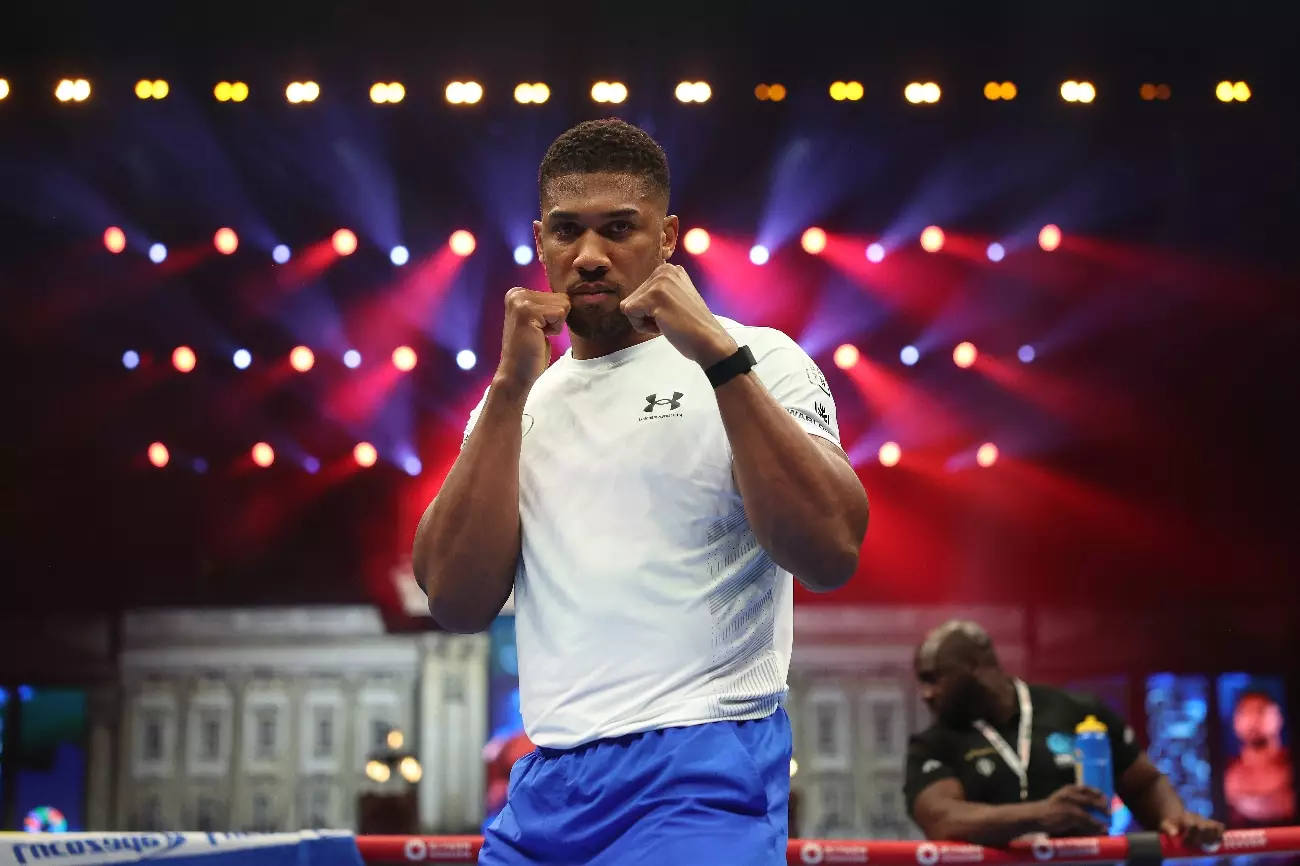In the world of heavyweight boxing, the drama both inside and outside the ring often captivates fans as much as the fights themselves. This upcoming rematch between Tyson Fury and Oleksandr Usyk on Saturday night in Riyadh has generated a significant buzz, and the shadows of past champions loom large. One name that stands out is Anthony Joshua (AJ), who, according to promoter Eddie Hearn, is unlikely to be present for this high-stakes bout. This article delves deep into the implications of Joshua’s absence and the broader narrative surrounding the heavyweight division.
Joshua’s Recent Struggles: Psychological and Physical Fallout
The landscape for Anthony Joshua has become increasingly fraught over the last couple of years. After suffering two consecutive defeats to Usyk, the second of which occurred on August 20, 2022, Joshua has faced immense scrutiny and pressure. His last fight against Danel Dubois on September 21 resulted in a crushing blow to his reputation, reducing him to a mere shadow of his former self. Hearn’s suggestion that Joshua might prefer the comfort of his home rather than facing cameras and a critical public reinforces the notion that the psychological toll of failure weighs heavily on the former champion. In this context, it becomes evident why Joshua’s decision to remain away from the fight scene is both strategic and understandable.
The embarrassment of watching Fury and Usyk, two fighters who have put him on the receiving end of defeat, could amplify Joshua’s lingering insecurities. Public appearances where he might have to confront questions about his recent performances could expose him to ridicule, thus maintaining a low profile seems like a protective measure. However, some critics argue that this approach mirrors a feared response, one that jeopardizes his mental fortitude in an already demanding sport.
While Joshua’s absence may appear as a withdrawal, it also raises intriguing questions regarding strategy and intentions. There’s an undercurrent of speculation about whether attending the event could have served as an opportunity for Joshua to reclaim some spotlight. In a surprising twist, what if he had chosen to show up ringside and confront the victor of Fury vs. Usyk? Such a move would have reasserted Joshua’s presence in the heavyweight conversation, signaling his readiness to fight irrespective of his past defeats. The spectacle could have shifted attention away from the fight itself and positioned Joshua as a contender in need of a shot at redemption.
This kind of bravado would undeniably reinstate his standing in a division rife with narratives of glory and conquest. However, as Eddie Hearn aptly pointed out, Joshua is not one to make a scene or feed off the drama. This demeanor raises the stakes of his absence, making fans curious about whether he is rebuilding himself mentally and physically in isolation.
Tony Hearn’s reflections on Joshua’s potential absence and the heavyweight rivalry reveal a complicated landscape of alliances and rivalries. His stirring praise for Tyson Fury, referencing his monumental victories against Wladimir Klitschko and Deontay Wilder, may seem warranted yet is layered with contradictions. While Hearn seeks to elevate Fury’s stature, he uncomfortably neglects the context of Joshua’s narratives. His failure to critically assess the opponents Fury fought, notably a declining Klitschko, detracts from a comprehensive understanding of these athletes’ respective legacies.
Moreover, while Hearn’s faith in Fury may rally fans behind the “Gypsy King,” it also risks alienating those who view Usyk as the more superior boxer. This divergence in opinion on who will emerge victorious encapsulates the uncertainty that defines heavyweight boxing today.
While the immediate focus is on the impending Fury vs. Usyk rematch, the question marks surrounding Anthony Joshua’s career trajectory persist. His decision to retreat from the public eye, juxtaposed against the backdrop of his competitors’ flair for the dramatic, places him at a crucial juncture. If Joshua aims to reclaim his position among the elite, it may require more than a passive reclusion.
As the heavyweight division continues to evolve with compelling matchups, the question remains: Will Joshua emerge from this self-imposed exile ready to reclaim his crown, or will he be further marginalized in a sport defined by relentless ambition and boxing prowess? The answers could shape not only his future but the fabric of the heavyweight boxing narrative for years to come.
As Fury and Usyk prepare to reforge their legacies in Riyadh, Anthony Joshua’s absence signifies a complex interplay of strategy, vulnerability, and the perennial endeavor of redemption that defines the heavyweight boxing scene today.

